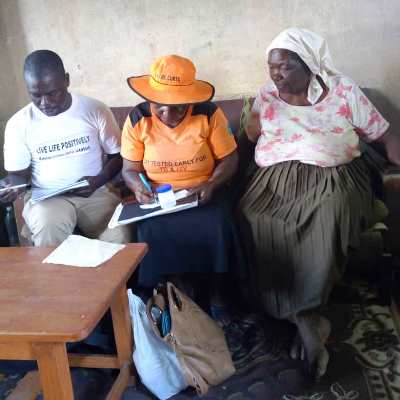Development Aid from People to People (DAPP Zimbabwe) was the first member of Humana People to People to pioneer HIV/AIDS prevention work using the Total Control of the Epidemic (TCE) programme concept in 2000. Since then, TCE has reached nearly 1 million people throughout Zimbabwe, equipping them with the capacity to take control of their lives against the HIV/AIDS epidemic.
DAPP Zimbabwe recognises that people are responsible for their own health, but must be empowered to make the right decisions. People’s active participation in protecting their health can be done through community-based public health campaigns that reach out to individuals, groups and target populations.
The TCE Zimbabwe programme assisted nearly 700 000 individuals in developing a personal HIV risk reduction plan from 2000 – 2012. The model has enabled pregnant women to know their HIV status, get tested and receive counseling and undergo treatment. More than 50 000 pregnant women have received HIV support services to prevent mother-to-child transmission.
TCE has, over time, been funded by various partners; however, the first grant in Zimbabwe from USAID made it possible to provide evidence of a successful HIV model, leading to the interest of different national governments, and ultimately, expansion into 12 countries reaching 20 million people in Africa, India and China by 2017.
Today, DAPP Zimbabwe runs an HIV/AIDS programme, HOPE Bindura, reaching vulnerable populations with HIV prevention, treatment, and care services along the continuum of care. HOPE Bindura mobilises young mothers to attend and participate in pre-natal and ante-natal care sessions. Additionally, the project works closely with local clinics and hospitals; it coordinates with the Ministry of Health and Child Welfare to provide HIV services.
As of 2019, HOPE Bindura has engaged over 42 000 people in its community outreach work, with more than 25 000 referred for HIV treatment at various local health centers. 830 People Living with HIV were organised in community-based support groups to promote treatment adherence, receiving training in Internal Servings and Lending, and small livestock husbandry to improve their nutrition.

